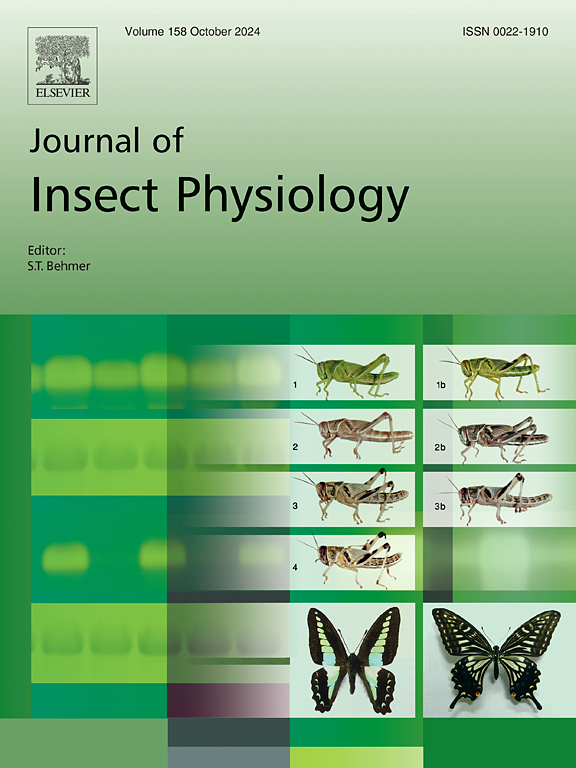Bombella intestini: A probiotic honeybee(Apis mellifera)gut bacterium
IF 2.3
2区 农林科学
Q1 ENTOMOLOGY
引用次数: 0
Abstract
Honey bee colonies are facing increasing environmental stressors that threaten their health and lifespan. While the gut microbiota may play a role in honey bee physiology, the specific functions of certain bacterial species remain unclear. This study investigates whether Bombella intestini, a bacterium highly enriched in the queen gut but nearly absent in worker bees, can act as a probiotic to promote honey bee growth, metabolism, and lifespan. Our results show that B. intestini can survive in larval food and the larval gut. When larval food is inoculated with B. intestini there is increased tryptophan in both the larval diet and larval hemolymph. Bees fed this diet had a longer lifespan. This study identifies B. intestini as a potential probiotic for honey bees, providing a microbiome-based strategy to enhance their growth and longevity. These findings open new avenues for improving honey bee health management through microbial supplementation.

肠道炸弹:一种益生菌蜜蜂肠道细菌。
蜂群正面临着越来越多的环境压力,威胁着它们的健康和寿命。虽然肠道微生物群可能在蜜蜂的生理机能中发挥作用,但某些细菌物种的具体功能尚不清楚。本研究探讨了一种在蜂后肠道中高度富集但在工蜂肠道中几乎不存在的细菌,是否可以作为促进蜜蜂生长、代谢和寿命的益生菌。结果表明,肠芽胞杆菌可在幼虫食物和肠道中存活。当幼虫食物接种了肠芽胞杆菌后,幼虫食物和幼虫血淋巴中的色氨酸都增加了。用这种食物喂养的蜜蜂寿命更长。本研究确定了bintestini是蜜蜂潜在的益生菌,为促进蜜蜂的生长和寿命提供了一种基于微生物组的策略。这些发现为通过补充微生物改善蜜蜂健康管理开辟了新的途径。
本文章由计算机程序翻译,如有差异,请以英文原文为准。
求助全文
约1分钟内获得全文
求助全文
来源期刊

Journal of insect physiology
生物-昆虫学
CiteScore
4.50
自引率
4.50%
发文量
77
审稿时长
57 days
期刊介绍:
All aspects of insect physiology are published in this journal which will also accept papers on the physiology of other arthropods, if the referees consider the work to be of general interest. The coverage includes endocrinology (in relation to moulting, reproduction and metabolism), pheromones, neurobiology (cellular, integrative and developmental), physiological pharmacology, nutrition (food selection, digestion and absorption), homeostasis, excretion, reproduction and behaviour. Papers covering functional genomics and molecular approaches to physiological problems will also be included. Communications on structure and applied entomology can be published if the subject matter has an explicit bearing on the physiology of arthropods. Review articles and novel method papers are also welcomed.
 求助内容:
求助内容: 应助结果提醒方式:
应助结果提醒方式:


